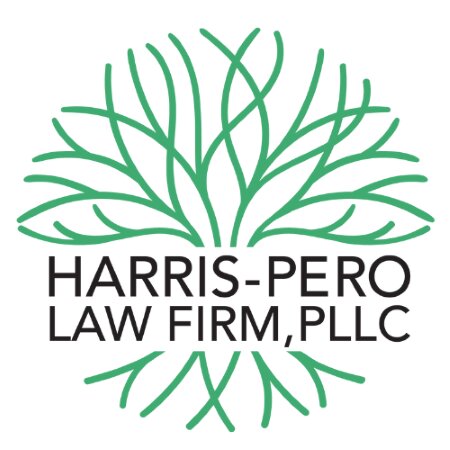Best Employer Lawyers in New York
Share your needs with us, get contacted by law firms.
Free. Takes 2 min.
Or refine your search by selecting a city:
List of the best lawyers in New York, United States
About Employer Law in New York, United States
Employer law in New York refers to the body of statutes, regulations, and case law that governs the relationship between employers and employees within the state. This area of law outlines rules regarding hiring practices, wages, workplace safety, discrimination, termination, benefits, and other facets of employment. In New York, both federal laws and state-specific regulations protect the rights of workers while also setting forth the responsibilities of employers operating within the state. Understanding employer law is essential for both businesses and employees to maintain compliance and foster positive workplace relations.
Why You May Need a Lawyer
People may require legal assistance with employer law issues in various scenarios. For employers, legal guidance is important to ensure compliance with complex state and federal employment laws. Common situations include drafting or reviewing employee handbooks, navigating workplace discrimination claims, responding to wage and hour disputes, dealing with layoffs and terminations, and handling government investigations or audits. Employees often need legal help when facing unfair treatment, discrimination, wrongful termination, unpaid wages, retaliation, or harassment. In both cases, a lawyer can help clarify rights and obligations, negotiate resolutions, and represent clients in court or before administrative agencies.
Local Laws Overview
New York has distinct employment laws that supplement federal regulations and frequently offer additional protections for workers. Key aspects include:
- At-will Employment: Most employment relationships in New York are at-will, meaning either party can end the employment at any time for any lawful reason. Exceptions exist for contracts and cases involving illegal discrimination or retaliation.
- Minimum Wage and Overtime: New York's minimum wage is higher than the federal level and can vary by region and sector. Overtime laws require non-exempt employees to be paid one and a half times their regular rate for hours worked over 40 in a week.
- Anti-Discrimination Protections: New York Human Rights Law protects against discrimination based on characteristics such as race, color, national origin, sex, sexual orientation, age, disability, gender identity, and more. These laws often extend beyond the protections offered at the federal level.
- Paid Family Leave: New York's Paid Family Leave Act allows eligible employees to take paid leave for certain family and medical reasons.
- Workplace Safety: Employers must comply with both federal Occupational Safety and Health Administration (OSHA) standards and New York's own workplace safety requirements.
- Termination and Severance: While New York does not require severance pay, employers must comply with certain notification requirements, especially during mass layoffs or closing under the New York WARN Act.
Frequently Asked Questions
What does at-will employment mean in New York?
At-will employment allows employers or employees to terminate the employment relationship at any time for any lawful reason or for no reason at all, with or without notice. However, terminations based on discrimination or retaliation remain unlawful.
What is the minimum wage in New York?
The minimum wage in New York varies depending on the location within the state and the size of the employer. It is generally higher than the federal minimum wage and subject to periodic increases.
When am I eligible for overtime pay?
Most non-exempt employees are entitled to overtime pay at one and a half times their regular hourly rate for hours worked over 40 in a workweek.
Can an employer fire me without a reason?
Yes, unless you are under a specific contract or the termination violates anti-discrimination or retaliation laws, an employer can terminate employment without providing a reason.
What protections do I have against workplace discrimination?
New York law prohibits discrimination in employment based on a wide range of protected characteristics, including but not limited to race, religion, gender, sexual orientation, age, and disability.
Are employers required to provide paid sick leave?
Yes, most employers in New York are required to provide paid sick leave, with accrual requirements depending on the size of the business. Additional local laws may also apply, such as New York City's paid sick leave ordinance.
What should I do if I am not paid for all hours worked?
Contact your employer first to address the discrepancy. If unresolved, you may file a complaint with the New York State Department of Labor or seek legal counsel to recover unpaid wages.
Am I entitled to severance pay if I am laid off?
There is no legal requirement for severance pay in New York unless specified in an employment contract or company policy. However, some employers may offer it as part of a separation agreement.
How do employment contracts work in New York?
Employment contracts can define terms of employment, compensation, benefits, confidentiality, and grounds for termination. While most employment is at-will, contracts can limit the reasons for termination or establish specific procedures.
What steps should I take if I face harassment at work?
Document incidents of harassment, report the conduct through your employer’s internal procedures, and reach out to agencies such as the New York State Division of Human Rights if the issue is not resolved. Consulting a lawyer can also help you understand and protect your rights.
Additional Resources
Several resources are available for individuals seeking information or assistance with employer law issues in New York:
- New York State Department of Labor - Provides guidance on labor standards, workplace rights, and wage complaints.
- New York Division of Human Rights - Handles discrimination complaints and provides information on anti-discrimination laws.
- U.S. Equal Employment Opportunity Commission (EEOC) - Federal agency overseeing discrimination laws.
- Occupational Safety and Health Administration (OSHA) - Ensures safe and healthy working conditions.
- Local bar associations - Offer lawyer referral services and resources for both employees and employers.
Next Steps
If you believe you need legal assistance with an employer law issue in New York, start by gathering all relevant documents such as employment contracts, pay stubs, correspondence, and records of workplace incidents. Consult with a qualified employment lawyer who can evaluate your situation, explain your rights and obligations under the law, and help develop a course of action. Many legal professionals offer initial consultations, during which you can discuss your case and determine the best path forward. Reach out to local resources or legal aid organizations if cost is a concern. Taking prompt action is often important to preserve your rights and build a strong case.
Lawzana helps you find the best lawyers and law firms in New York through a curated and pre-screened list of qualified legal professionals. Our platform offers rankings and detailed profiles of attorneys and law firms, allowing you to compare based on practice areas, including Employer, experience, and client feedback.
Each profile includes a description of the firm's areas of practice, client reviews, team members and partners, year of establishment, spoken languages, office locations, contact information, social media presence, and any published articles or resources. Most firms on our platform speak English and are experienced in both local and international legal matters.
Get a quote from top-rated law firms in New York, United States — quickly, securely, and without unnecessary hassle.
Disclaimer:
The information provided on this page is for general informational purposes only and does not constitute legal advice. While we strive to ensure the accuracy and relevance of the content, legal information may change over time, and interpretations of the law can vary. You should always consult with a qualified legal professional for advice specific to your situation.
We disclaim all liability for actions taken or not taken based on the content of this page. If you believe any information is incorrect or outdated, please contact us, and we will review and update it where appropriate.
Browse employer law firms by city in New York
Refine your search by selecting a city.















